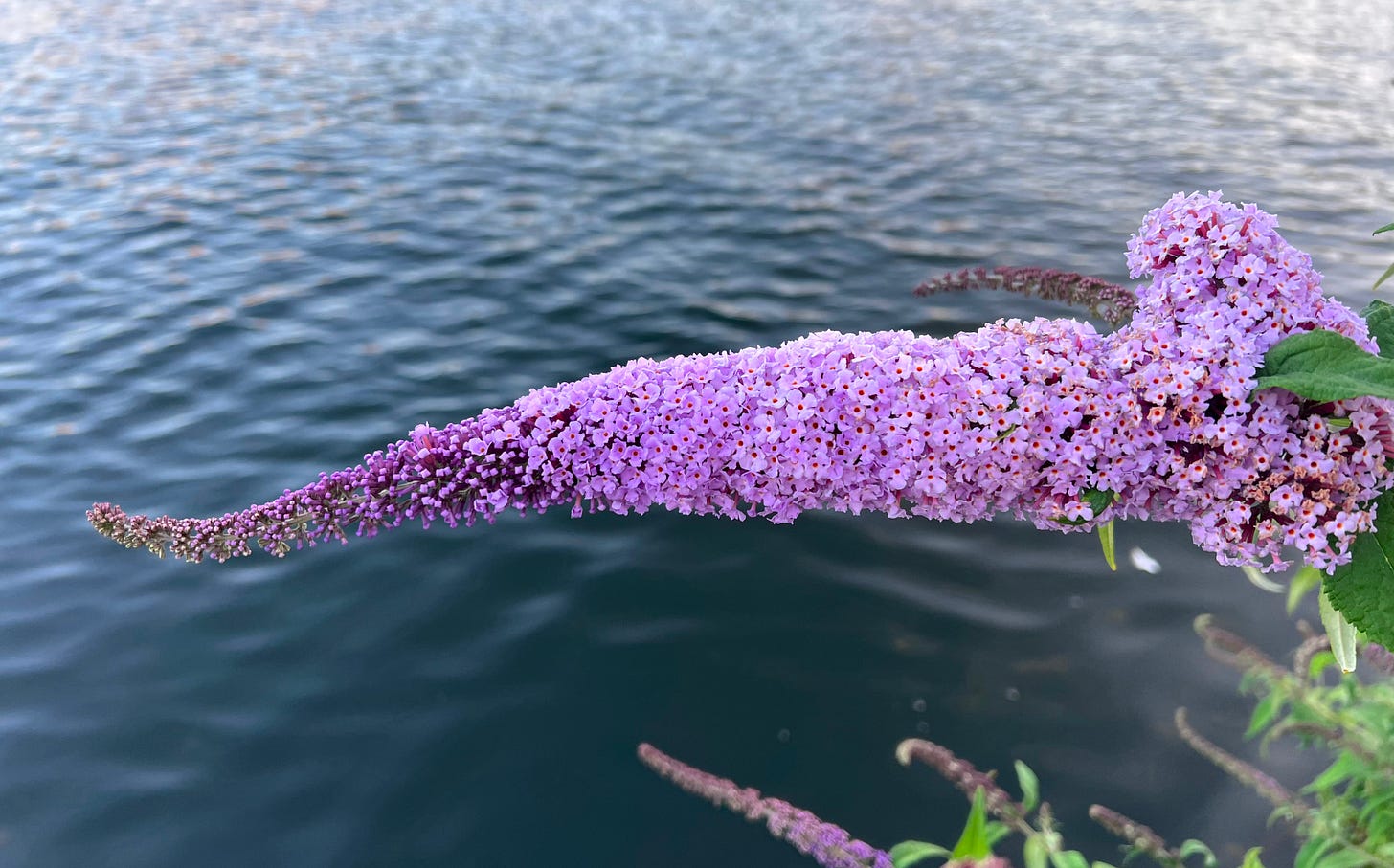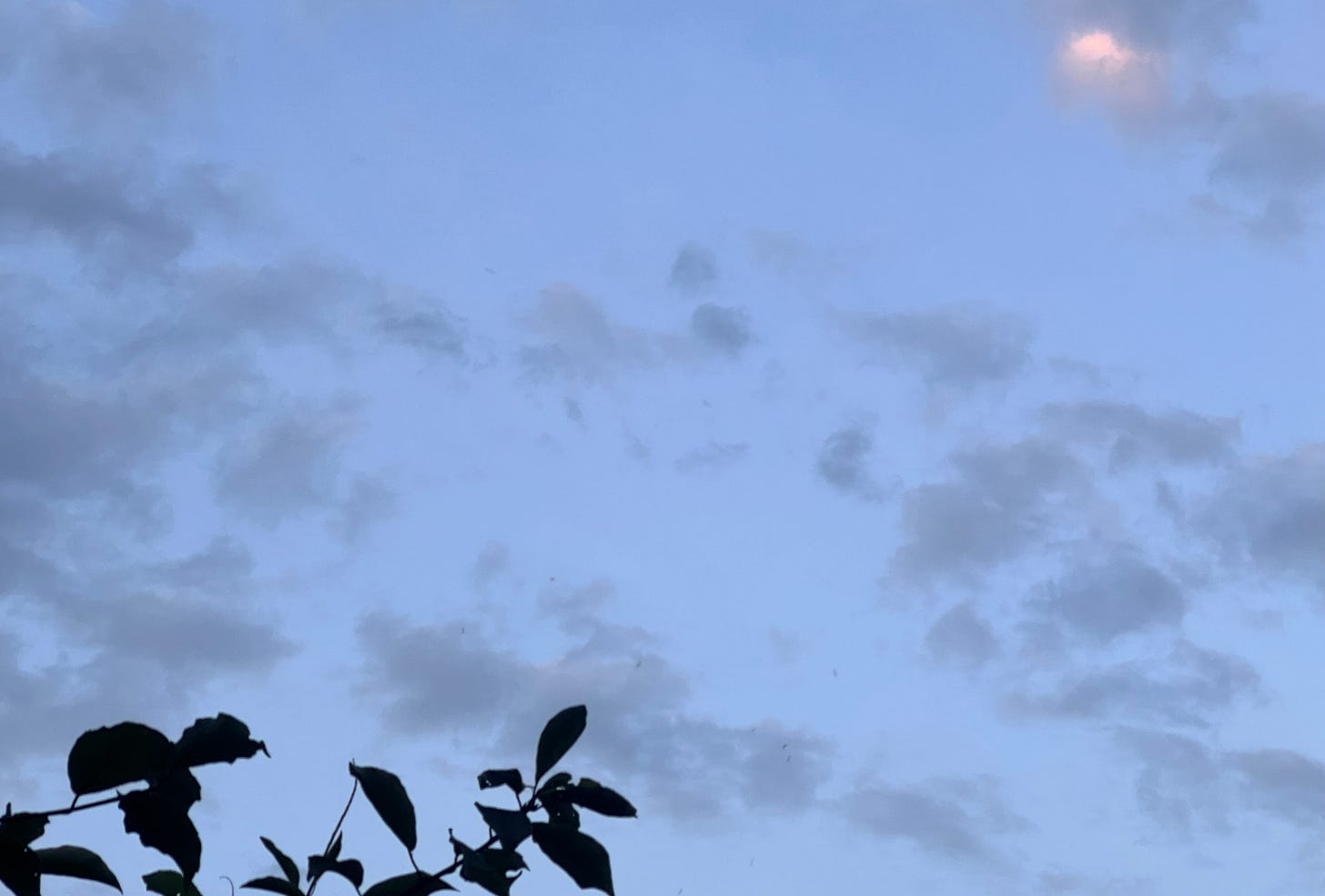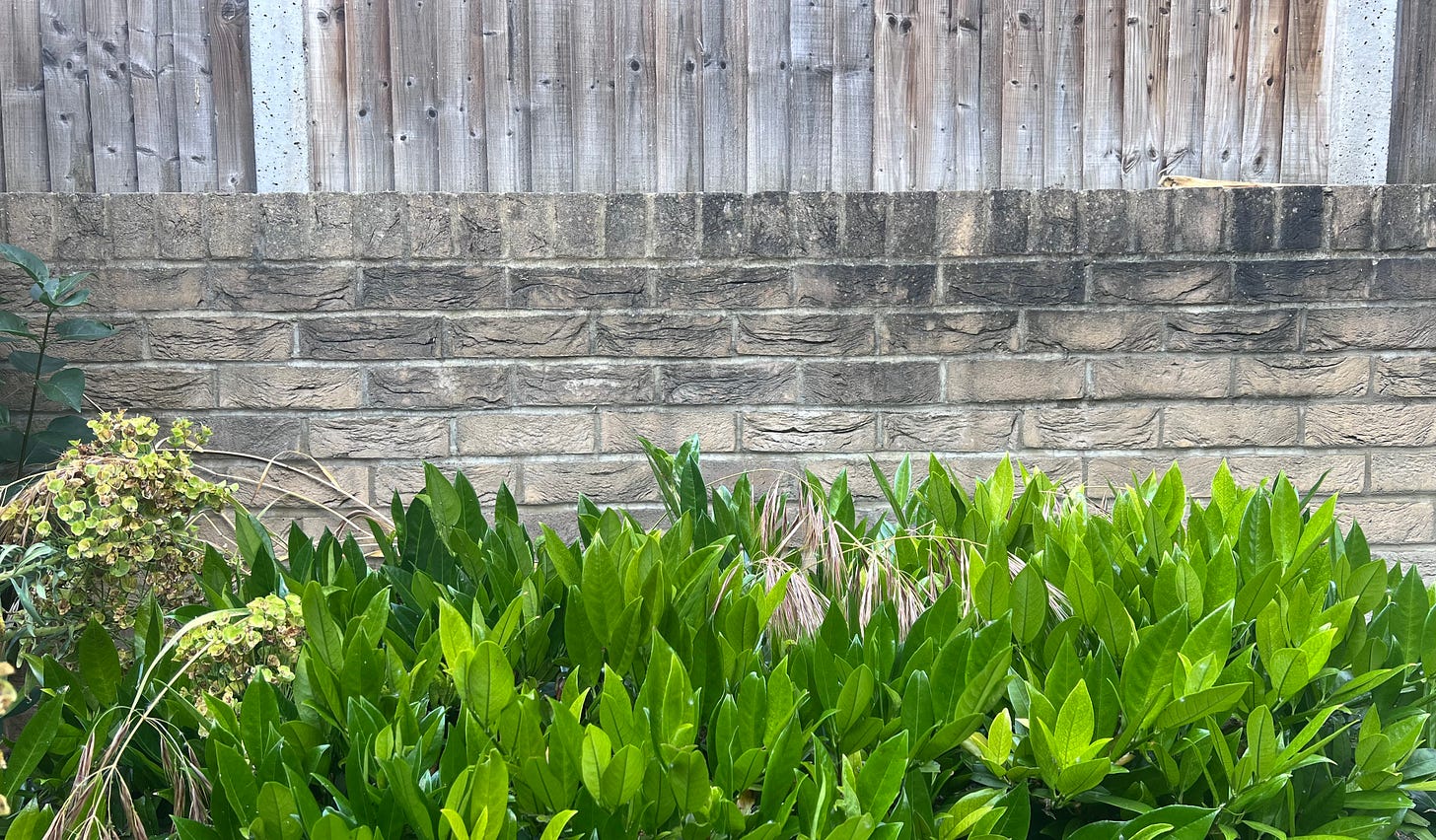The Secret to Beating Burnout: Manage Your Energy, Not Your Schedule
Tired of productivity hacks that lead to burnout? Discover a simple framework for managing your energy, not just your time, to achieve more with less stress.

Hello there! I’m Nur, and if you are new here, I write about productivity tips, creative reflections, and book/film/TV show reviews.
This article falls under the umbrella of both reflection and productivity. I think managing energy is the key to personal and professional growth, so I hope my findings will be helpful to some of you.
First, I'll share how I came to the point of realizing I should be managing my energy, not my time, and introduce my energy categories of “Something In, Something Out, and Stop & Process.” Secondly, I'll give an example to explain what I mean by these three categories, and then I’ll explain how I plan my daily to-do list based on managing my energy. Near the end, I’ll quickly mention being an ambivert and how social interactions impact my energy, and finally, I'll give you a quick bullet-point summary. Feel free to check out that summary first for a glance, and if you like it, you can dedicate more time to reading the full essay.
I hope you find it useful!
The "Something In, Something Out, and Stop & Process" Method

As a creative person with a full-time job and multiple interests in life, I went through phases of trying to figure out how to balance everything and manage my time. I tried heavy planning, I tried Pomodoro method, and I watched tons of YouTube videos about 5 am morning routines, giving up many times after not reaching that “perfect” productive version of myself. Until I realized… wait, things should be fun, and these methods should serve me and help me feel creative. What if I am only ticking boxes and serving some imaginary future version of myself, envisioned by the surrounding noise? That shouldn’t be how it’s supposed to be.
I was right. I don’t know when or how it happened, but something sparked in my mind and I said, “I am pushing myself to do things at the wrong times.” I was trying too hard to stick with my plan. Then I started to observe more and more what I was doing and how I felt while doing it. I found myself saying, “I can’t take this in,” or “I need to hold a pencil and write or scribble something down, anything,” or “My brain is frozen, where do I go from here?” These were internal reactions to my external actions. The more I listened, the more I analyzed them, and it brought me here:
The 3 Fundamental Mindsets of Everyday Actions:
Something In
Something Out
Stop and Process
Basically, this means that some actions feel like I'm putting something out, while others feel like I am taking something in (physically, mentally, or emotionally). And whenever I take too many things in, my body (without my conscious control) decides to stop and process. I was hard on myself many times without realizing my body was doing me a favour. Now, I am more aware, and whenever I need to stop, I don’t wait for my body to remind me; I do it intentionally without pushing myself to be productive.
Let’s Solidify What I Am Trying to Say with an Example
I'll share a portion of my day and then break it down into "Something In," "Out," and "Stop & Process."
This is my morning routine: I usually wake up sometime between 5:00 and 7:00. I read for half an hour, then exercise for around 10 minutes. Then I make coffee, and while making it, I listen to a podcast. I then either go to a nearby park to read my novel, or read in our small garden, or at home. If I go to a park, I don't listen to anything while walking; I just walk.
So let’s break this down:
Reading for half an hour - Something In
Exercise for 10 min - Something Out (physical energy)
Making coffee and listening to a podcast - Something Out (making coffee) and Something In (the podcast)
Walking to a nearby park - Stop and Process (stopping doesn’t necessarily mean stopping your body, but rather stopping your mind to process)
Reading a novel and drinking coffee - Something In (physically and mentally)
All I do is just stop and listen to what my brain and body are saying. I think we are becoming more and more afraid of stopping, slowing down, and missing out on things. But there’s nothing to be worried about. We don’t have to be “doing something” all the time. I try to understand what my body is saying—do I need something in? Or out? Or do I need to stop and process?
Our mind needs to separate things, and we owe it to ourselves to create those borders. Then, time will flow on the same timeline for our body and our mind.
A few days ago, in the morning, when I went to the park to read, I couldn’t immerse myself in the book. Then I realized there were some things I was thinking about from yesterday. It was as if there were open tabs on my mental Google Chrome, and this new tab of reading my novel couldn’t load. I didn’t want to miss out on the fun of reading, so I stopped, thought about all the tabs one by one, and transformed those vague thoughts into solid sentences in my mind. And while doing that, I felt the urge to walk, so I walked. The thing I needed at that time was to stop and process.

Another Thing to Consider: Separating Tasks - Responsibilities and Fun Stuff
I also try to balance two things: my creative endeavours and my responsibilities. I usually do something fun, calming, or creative before and after a life-admin task that is mentally draining or boring.
Some days, I realize I’m doing mentally or physically draining tasks back-to-back, and in the end, when I finally have time for what I want to do, I find myself left with no energy. In those cases, it is easier to just scroll on my phone for fun to get rid of the tiredness and stop thinking. That happens because we end up using 98% of our daily energy up to that point.
So the aim is never to get to the point where your mental, physical, or emotional energy is lower than 35%.
How to Plan Your Day with Long-Term Goals and Manage Your Energy
I usually have plans for my creative goals. I have decided on one big goal for five years—for me, it’s writing a book. And then I have a more specific six-month plan. Because I want to write, I prioritize reading. My six-month goal is to read a certain number of books and then analyze my novel ideas in the sixth month. I aim to write an article on Substack every week, or at least 3 times a month, and I also give the majority of my free time to reading. I have a big spreadsheet of novels to read, but I also have a small note for my reads for this year. Whenever I get too excited about a book, it goes onto that little note. Then, when I finish a book, I choose my next read from that little note. All of this is to say, writing a Substack post and reading my current novel are the two backbones of my weekly plans. All other stuff is optional, and I let life happen. I don’t make a to-do list for every day and stick to it; it feels restricting to me. What I do is, as I mentioned in my first article on Substack, I use an app called Toggl, and I track how much time I spend on reading, writing, the piano, and some other things worthy of tracking.
I like seeing how many hours I read in a week; that boosts my motivation. It's also interesting to see how many hours it took me to read a certain novel. For less creative but mandatory life-admin stuff, I use the notes app on my phone for things I should be doing, like a grocery list, replying to an email, paying a bill, etc. Based on my life-admin tasks and creative endeavours for that day, I usually have one to three things I try to achieve every day. I decide which order I should do them in to use my energy wisely.
It is not about dedicating all of your time to your goals, but about managing your energy correctly so that things don’t have to take more time to achieve than necessary.
We are here on Earth to experience life physically, mentally, and emotionally. We are here to learn, to understand, to be surprised, to connect. Nothing is more important than the conversations that make our days special. And this energy management, for me, is what allows me to be more spontaneous while keeping things on track.
It’s like saving money for bad days—I save energy for later so I can afford spontaneity in this short life of ours.
One Final Thing: Managing Energy Socially
I love being surrounded by people with a “can-do” attitude, and I try to avoid negative talk. I don’t follow the news much and am not a huge fan of talking about how unfair things are. I silently leave those environments if I can, or wear invisible earplugs if I don’t have the luxury to leave. If I talk about something negative, I at least try to approach it as positively as possible. I don’t think I am being optimistic by doing it, I’m realistic. I know my boundaries, and I don’t see any value in investing energy and emotion into something I would have little to no impact on.
Many people I like talking to have a superpower of evaluating the conversations they are in, and the moment they realize things are getting gloomy, they come up with something to lighten things up and make it positive.
I think negative talk is a distraction from our focus, and I think some people recharge and feel understood by exchanging these conversations—a lazy way to connect with people on the common ground of a similar dislike or, in some cases, hatred.
One last note on this: as an ambivert who loves connecting with people and having conversations, but needs to charge myself with some silent downtime. I don't arrange friend meetups on consecutive days. Or if I attend a social event, I usually don't do something similar in the same week. It’s also the same with phone calls. Sometimes I talk to someone for three hours and have a deep conversation. These sorts of things are labelled as big “Something In & Out” for me—expressing myself and listening. Afterwards, I usually need some slow time to relax.
In Summary
I balance the things I take in mentally (like a book), physically (like food), and emotionally (like a conversation).
I alternate tasks among the Something In, Something Out, and Stop and Process categories. I listen to my body and ask: Does it want something to take in? Something to put out? Or to stop and process? Then I choose the appropriate one to do it from my options.
I balance creative & fun stuff with chores or life-admin tasks. I try to avoid doing boring, mentally draining chores consecutively.
I roughly have one goal for the next five years, a more specific goal for the next six months, and two non-negotiable things to do every week: Reading and Writing. Combined with these two mandatory creative things, I have 3-4 other optional creative things. From these options, I choose what to do based on my body’s energy requirement at that moment.
I don’t make big to-do lists, yet I like tracking some of my goal-oriented actions with an app called Toggl. I like seeing how many hours I spend weekly on reading, writing, playing the piano, and so on.
I try to avoid negative talk and like being surrounded by positive people with a can-do attitude.
I believe stopping and journaling, or going for a walk without a device, has a huge impact on everything you do. We are actually giving ourselves a moment to just be and process our thoughts. All the things you learn and all the conversations you have lead you to those moments of being, and I think that has a beauty we easily overlook. Walking and noticing every detail around you: the types of trees, the smell of the morning, the greyish-blue lines in the sky. It’s an underrated meditation, and we need it, so I don’t try to save time on those crucially necessary moments.
Thanks for reading! Is there anyone you think this post might be helpful for? If so, please consider sharing it with them!






